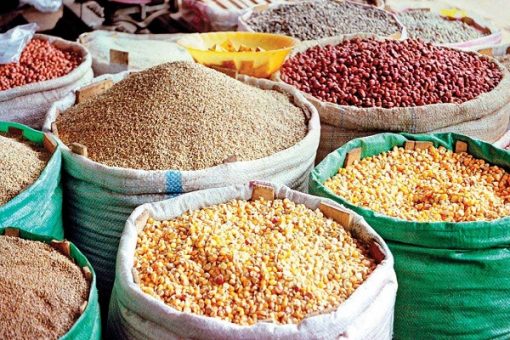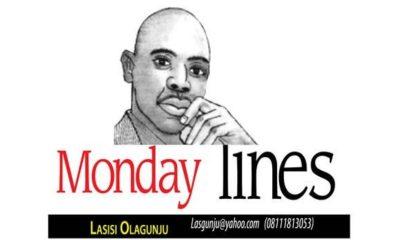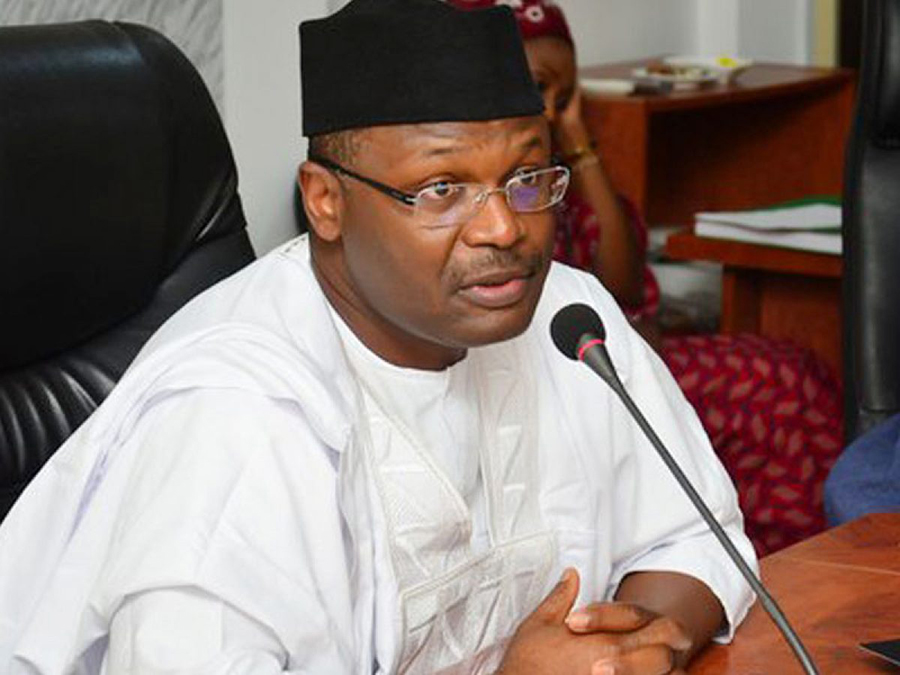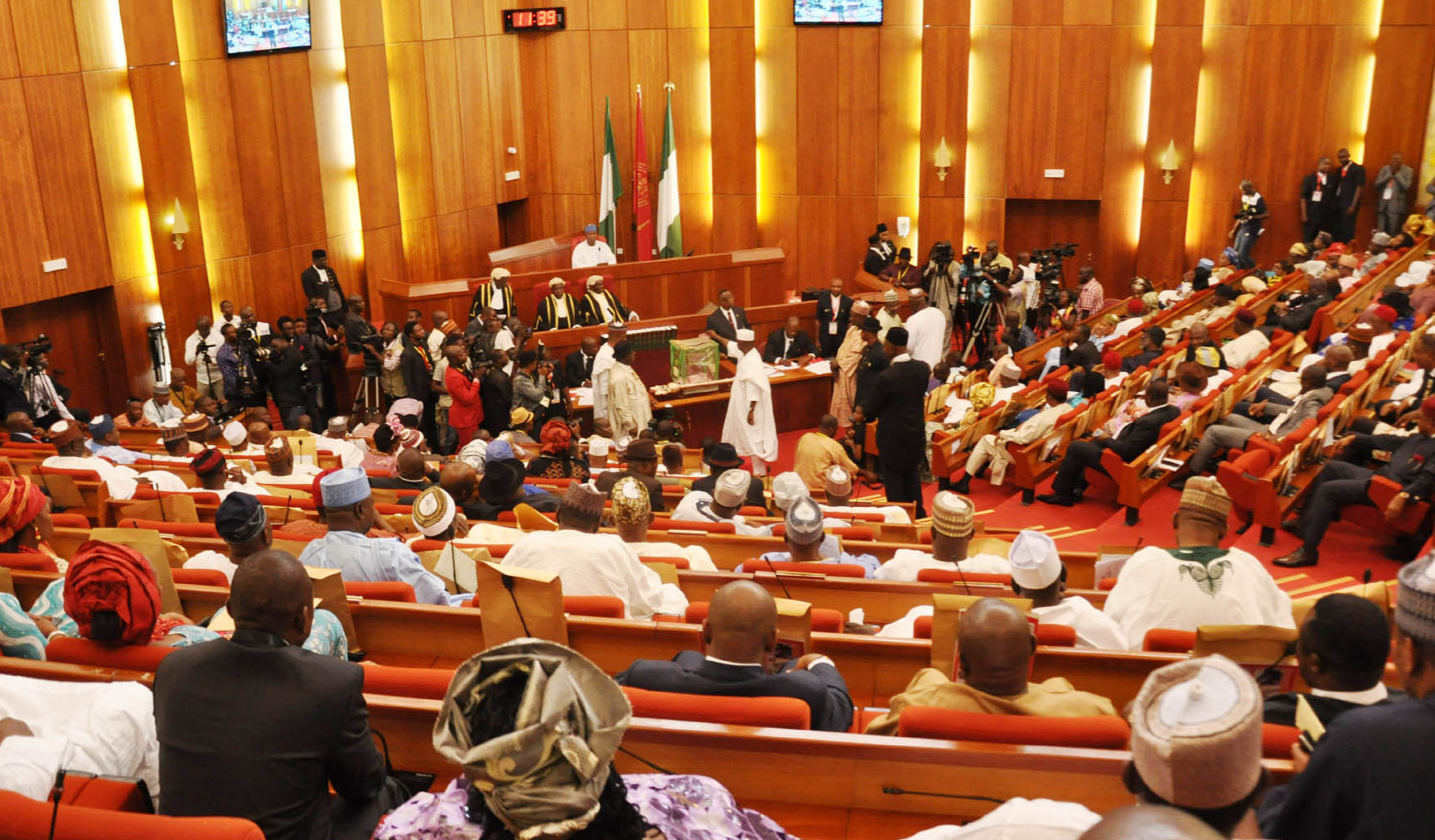Business
2024 Budget: What Average Nigerian Wants?
Published
8 months agoon
By
Editor
By Richard Asoge
In line with one of his statutory obligations, President Bola Ahmed Tinubu on Wednesday, 30th November 2023, laid before the joint session of National Assembly the budget for year 2024, indicating his intention to spend N27.5 trillion, given priorities to defence & security, education and infrastructure. From the receipt side, N18.3 trillion is expected from oil, non-oil, tax and other revenue creating a deficit gap of N9.18 trillion which is to be financed by new borrowing and drawdown on multilateral and bilateral loans.
For a very long time, the gap between recurrent expenditure and capital expenditure was always far apart. Sometimes, allocation to the recurrent expenditure will double that of capital. This accounts for a serious and accumulated deficit of basic infrastructures over the years. So, having more in the side of capital expenditure will bring a relative relief if the budget is faithfully implemented without given excuse for non-performance.
FROM THE AUTHOR: Subsidy Removal: A Measure To Re-Jig The Economy [OPINION]
Reflecting on 2023 budget of 24.8 trillion (including supplementary), only 13.7trillion (55.2%) had been spent so far as at September ending, leaving only 3 months for the implementation to be over. The performance was not all that cheering. Various sources of borrowing had been implored and becoming uncertain to get more loans. This is unconnected to the attention given to taxes in 2024 budget as a prominent source of revenue. Agreed that tax is a good source of revenue anchored on production. Tax itself is derived from production. Given so much attention on tax rather than production first may not give desire result at long run. The desire of every serious economy is to keep inflation rate at single digit, unemployment at barest minimum, embarking on policies that would positively influence macroeconomic variables. Most of the advance economies of the world which we copy have robust production system which makes it easy for them to generate much revenue via taxation. Out there, sizeable number of people were engaged in one activity or the other that adds values to the GDP.
Current inflation rate of 27.3% is more of cost push than demand pull. Cost of operation to the businesses and surviving manufacturing firms had gone up exponentially, which made the outputs extremely expensive for a common man to afford. Cost of transportation of items or persons from one point to the other, cost of energy, cost of credit and others drive the inflation. Plans to moderate inflation rate to 21.4% as planned in 2024 budget is attainable, and even surpass it if structural factors that brought about the challenges are holistically tackled. Given domestic refineries and modular refineries the necessary support for production without further delay to meet local demand substantially will bring succor to the citizens and as well beneficial to the nation’s economy. Even if the price of petroleum motor spirit is not all that reduced significantly as being expected by some, whatever reduction will have, will be beneficial and as well add value to us as a nation. Employment generation along the chain of production and the bye products will be an advantage.
Waiting till the third quarter of the year before evaluating the performance of the budget to see if it is tilting toward desire result seems not the best approach but time to time check to deal with any challenge in early stage.
FROM THE AUTHOR: OPINION: The Alarming Naira Depreciation And Way Forward
Allocation of 8% (N2.18 trillion) to education may not up to the recommendation of UNESCO, but there is significant improvement compared to what obtained in the time past. N50 billion student loan is a good move to assist indigent ones but government should not see it as an opportunity to take its hands off subvention or reduce subvention to various institutions of learning. Otherwise, schools will load various charges under school fees to keep their heads above the sea level thereby defeating the principal purpose behind the establishment of such loan.
If data released by NBS is anything to go by, GDP was observed to move up to 2.54% (year on year) in real terms in the third quarter of 2023 from 2.25% in 2022. The growth was driven by service sector. Contribution from agriculture and industry sectors is less which is why agricultural outputs are becoming scarce in the market. Of course, any item short of supply to the demand, price will dictate who get such item. Making agriculture at the forefront of economic drivers toward achieving the 3.75% economic growth in 2024 will not only put an end to hunger but ensures food security. Security of lives and properties propels economic growth. When people can sleep with both eyes closed, economic growth is assured. So, allocation of N3.25trillion to defence and security, making it the sector that got most in the budget seems justified considering the period we are as a nation. However, all those that are concerned in the defence and security of the country must all strive to ensure total security on the land, on the sea and on the air.
An average man on the street is no longer interested in mathematics of budget or various statistics been churned out. He is after a bag of rice coming down to N30,000 from the current suicidal price of N60,000. An average housewife wants N5,000 in her purse to be enough for a pot of soup for a family of four for at least two days. Everyone is not just interested in the price of basic items to come down but stability in prices. In the past six months or thereabout, nothing harms the economy like price instability. Prices of goods and services were ticking upward every minute as if it were clock causing naira to lose its worth.
Richard Asoge
Clappahouse Analytics
chards001@gmail.com
08081492614
You may like
Business
JUST IN: CBN Raises Interest Rate to 26.75% Amid Surging Inflation
Published
4 days agoon
July 23, 2024By
Editor
The Central Bank of Nigeria, CBN, Monetary Policy Committee, MPC, on Tuesday raised the interest by 50 basis points to 26.75 per cent from 26.25 per cent in May 2024.
CBN governor, Olayemi Cardoso, announced this at a press briefing on Tuesday at the end of the two-day 296th MPC in Abuja.
According to him, the decision to further increase the interest rate is to tackle the country’s rising core inflation and food inflation which stood at 34.19 per cent and 40.87 per cent, respectively in June.
READ ALSO: JUST IN: 58 Countries Back Okonjo-Iweala For Second Term As WTO DG
He said members of the MPC are not oblivious of the need to address the rising prices of food in Nigeria, necessitating the interest rate hike.
DAILY POST reports that the implication of the interest rate hike is that businesses, farmers, manufacturers and investors will have to pay more to get loans from banks.
The 296th MPC meeting is the fourth time the interest rate has been increased since the appointment of Cardoso in September last year.
Recall that in May 2023, when President Bola Tinubu was inaugurated, Nigeria’s interest rate stood at 18.75 per cent while inflation rate stood at 22.41 per cent.
READ ALSO: JUST IN: ADC Reps Member Defects To APC
Meanwhile, despite CBN’s continued interest rate hikes, the country’s inflation has not cooled off.
Earlier analysts had called for a pause in the hike of the interest rate.
The Director of the Centre for Promotion of Private Enterprise, Muda Yusuf, backed call for a pause in the hike of the interest rate.
According to him, the monetary instruments have been overstretched, hence not productive.
“I think we have overstretched monetary instruments because of inflation. They should put a pause on interest rate hikes,” he said.
Business
CAC To Cancel Certificates Of BDCs With Revoked Licences
Published
2 weeks agoon
July 11, 2024By
Editor
The Corporate Affairs Commission (CAC) has said it would cancel the certificates of incorporation of Bureaux De Change(BCDs) whose licences have been revoked by the Central Bank of Nigeria( CBN).
The Nation reported in February the CBN revoked the licences of 4,173 Bureau De Change operators over their failure to meet regulatory guidelines.
In a statement by its acting Director, Corporate Communications, Sidi Hakama, CBN explained that the regulatory provisions flouted include nonpayment of all necessary fees within the stipulated period.
CBN said: “The affected institutions failed to observe at least one of the following regulatory provisions: Payment of all necessary fees, including licence renewal, within the stipulated period in line with the guidelines.
READ ALSO: FEC Steps Down Projects From Past Govts For Review
“Rendition of returns in line with the guidelines; compliance with guidelines, directives, and circulars of the CBN, particularly Anti-Money Laundering, Countering the Financing of Terrorism and Counter-Proliferation Financing regulations.”
However, in line with the above directive by the CBN, the CAC in a notice on its website on Wednesday, said the certificates would be cancelled within three months if the affected companies do not change the names and objects of such companies.
READ ALSO: Actress Joke Silva Celebrates Legendary Husband At 82
“The general public is hereby informed that following the revocation of the operational licenses of 4,173 Bureau De Change companies by the Central Bank of Nigeria vide a Federal Republic of Nigeria Official Gazette (Vol. 111) No. 37 of February 27, 2024 for noncompliance with Regulatory Standards, the Corporate Affairs Commission in the exercise of its powers under section 8(1)(e) of the Companies and Allied Matters Act, 2020 advises these companies to within three months from the date of this publication, change the names and objects of such companies.
“Failure to change the names and objects within the stipulated time frame shall result in cancellation of certificate of incorporation and dissolution. It is to be noted that it is unlawful for a company whose certificate has been deemed dissolved to carry on business,” the CAC notice reads.
Business
FG Suspends Taxes On Maize, Wheat, Rice, Others
Published
3 weeks agoon
July 8, 2024By
Editor
The Federal Government has suspended duties, tariffs and taxes on some essential food items imported through land and sea borders.
Minister of Agriculture and Food Security, Abubakar Kyari, announced this at the National Press Centre, Abuja.
Kyari also said the Federal Government has also inaugurated the Renewed Hope National Livestock Transformation Implementation Committee to develop and implement policies that prioritize livestock development and align with the National Livestock Transformation Plan.
He stated that the listed food items, which include maize, wheat, husked brown rice and cowpeas, will enjoy a 150-day Duty-Free Import Window.
READ ALSO: 10 Safest Countries In The World In 2024
He added that the move is part of the Presidential Accelerated Stabilization and Advancement Plan, which is aimed at achieving food security and economic stability in the country.
According to him: “The Federal Government has announced a 150-day Duty-Free Import Window for Food Commodities, suspension of duties, tariffs and taxes for the importation of certain food commodities (through land and sea borders). These commodities include maize, husked brown rice, wheat and cowpeas.
READ ALSO: Court Orders Buhari’s Minister To Account For N729bn Payment To Poor Nigerians
“Under this arrangement, imported food commodities will be subjected to a Recommended Retail Price (RRP).
“I am glad to reiterate that the Government’s position exemplifies standards that would not compromise the safety of the various food items for consumption.
“In addition to the importation by the private sector, the Federal Government will import 250,000MT of wheat and 250,000MT of maize. The imported food commodities in their semi-processed state will target supplies to the small-scale processors and millers across the country.”

FULL LIST: Those Supporting, Against Aug 1 Nationwide Protest

Religious Leaders Harp On Tolerance At Grassroots Sensitisation Programme In Benin

Act Fast On Oil Spill Rocking Forcados Area, CSOs Task FG, Delta Govt
Trending

 News2 days ago
News2 days agoNationwide Protest: The Killer Is Afraid Of Death [OPINION]

 Metro5 days ago
Metro5 days agoConfusion As Female Passenger Dies In Lagos Keke Marwa

 News4 days ago
News4 days agoJUST IN: Tinubu Sends ₦70,000 Minimum Wage Bill To NASS

 Entertainment4 days ago
Entertainment4 days agoActress Denies Alleged Affair with Senate President Akpabio

 News2 days ago
News2 days agoBREAKING: INEC Can Handle Local Government Elections, Says Chairman Yakubu

 News3 days ago
News3 days agoPAP: Again, Otuaro Meets Stakeholders, Re-emphasises Importance Of Collaboration

 Headline3 days ago
Headline3 days agoBREAKING: SGF, NSA, Ministers In Emergency Meeting Over Planned Nationwide Protest

 Politics2 days ago
Politics2 days agoPlace Obaseki On Security Watch List, Edo APC Urges FG, As State Govt Kicks

 Headline4 days ago
Headline4 days agoElon Musk Opens Up About His Transgender Child

 News4 days ago
News4 days agoJUST IN: Senate Passes Minimum Wage Bill From N30,000 To N70,000





























